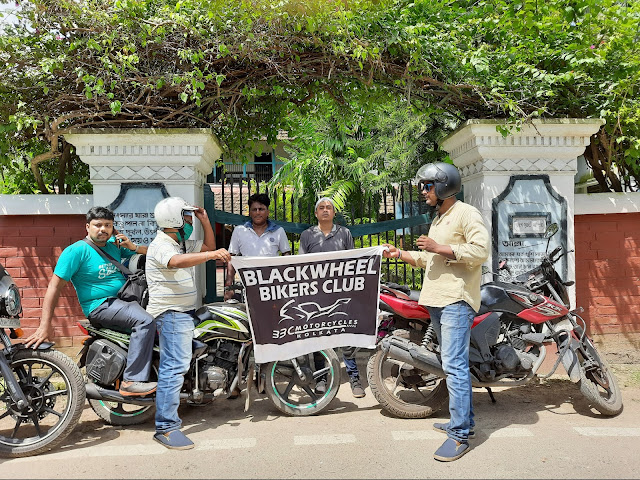Sarat Chandra Chattopadhyay:
Sarat Chandra Chattopadhyay, then again spelt as Sarat Chandra
Chatterjee (15 September 1876 – 16 January 1938), was a Bengali author and
short story essayist of the mid twentieth century. A large portion of his works
manage the way of life, misfortune and battle of the town individuals and the
contemporary social practices that won in Bengal. He stays the most famous,
interpreted, and adjusted Indian creator ever. Sarat Chandra was a trying,
experience adoring kid. His schooling started at Pyari Pandit's pathshala, a
casual town school and later he joined Hooghly Branch High School. He was a
decent understudy and got a twofold advancement that empowered him to skirt an
evaluation. He breezed through his Entrance Examination (public assessment
toward the finish of Class X) yet couldn't take his F.A. (First Arts)
assessment or go to school because of absence of assets.
Sarat Chandra Chattopadhyay was brought into the world on 15 September 1876, in Debanandapur, a little town in Hooghly, West Bengal. Sarat Chandra burned through the vast majority of his adolescence at his maternal uncle's home in Bhagalpur, Bihar. There, he went to the Durga Charan Balak Vidyalay. He composed his celebrated book "Devdas" in Bhagalpur and is supposed to be some way or another his own story, while he visited Jogsar a Red-light territory to meet Chandramukhi.
Subsequent to getting back from Burma, Chattopadhyay remained for a very
long time in Baje Shibpur, Howrah. At that point he made a house in the town of
Samta, in 1923, where he went through the later twelve years of his life as an
author. His home is known as Sarat Chandra Kuthi. The two-celebrated Burmese
style house was additionally home to Sarat Chandra's sibling, Swami Vedananda,
who was a devotee at Belur Math. His and his sibling's samadhi are inside the
house's compound. Trees like bamboo and guava planted by the prestigious
creator actually stand tall in the nurseries of the house.
The amazing ubiquity of Sarat Chandra Chattopadhyay has been
authenticated by probably the most unmistakable journalists just as scholarly
pundits across India in their writings. Most of the writers in Assam and
Odisha, in any event before the Independence, read him respectfully in unique
Bengali; rest of India read him in interpretations in differing quality.
Distributers were never worn out on reproducing his works; he stays the most
interpreted, the most adjusted and the most counterfeited creator. His books
likewise arrived at various individuals thanks to film and he is as yet a
significant power in Indian film. O. N. V. Kurup composes "...Sarat
Chandra's name is loved as truly as the names of prominent Malayalam authors.
His name has been a family word". Dr Mirajkar[ illuminates "the
interpretations of Sarat Chandra drummed up some excitement among the perusers
and essayists all over Maharashtra. He has become a known abstract character in
Maharashtra in the position of any famous Marathi journalists including H. N.
Apte, V. S. Khandekar, N. S. Phadke and G. T. Madkholkar". Jainendra
Kumar, who thinks about that his commitment towards the creation and
safeguarding of social India is second, maybe, just to that of Gandhi, poses a
logical inquiry summarizing Sarat Chandra's position and apparently the job of
interpretation and between scholarly relationship: "Sarat Chandra was an
essayist in Bengali; yet where is that Indian language wherein he didn't turn
into the most well known when he arrived at it?”
His works have been made into around fifty movies in numerous Indian
dialects. Especially, his novel Devdas has been made into sixteen renditions,
from Bengali, Hindi to Telugu. Parineeta has likewise been made threefold in
Hindi. In 1957 Bardidi was made by chief Ajoy Kar. Rajlakshmi O Srikanta and
Indranath Srikanta O Annadadidi by Haridas Bhattacharya in 1958 and 1959
individually, Majhli Didi (1967) by Hrishikesh Mukherjee and Swami (1977), for
which he was granted the Filmfare Award for Best Story, are different
variations. Another celebrated film Chhoti Bahu (1971) depends on his novel
Bindur Chhele. His epic 'Datta' was adjusted into a Bengali movie as Datta
(movie) in 1951 coordinated by Saumyen Mukhopadhyay featuring Sunanda Banerjee
and Manoranjan Bhattacharyya ahead of the pack jobs with Ahindra Choudhury as
Rashbehari, and again in 1976 featuring Suchitra Sen and Soumitra Chatterjee
leading the pack jobs. The film Sabyasachi (film) was delivered in 1977
dependent on his work Pather Dabi. Different motion pictures dependent on his
novel were Nishkriti, and Apne Paraye (1980) by Basu Chatterjee, featuring Amol
Palekar. The Telugu film Thodi Kodallu (1957) is likewise founded on this
novel. Gulzar's 1975 film, Khushboo is significantly motivated by his work
Pandit Mashay. The 1961 Telugu film Vagdanam by Acharya Atreya is inexactly
founded on his novel Datta. Additionally the 2011 film Aalo Chhaya depends on
his short story, Aalo O Chhaya.'Chandranath'is likewise another film made
dependent on his novel in the year 1957 and Suchitra Sen and Uttam Kumar
assumed the fundamental part.








0 $type={blogger}:
Post a Comment